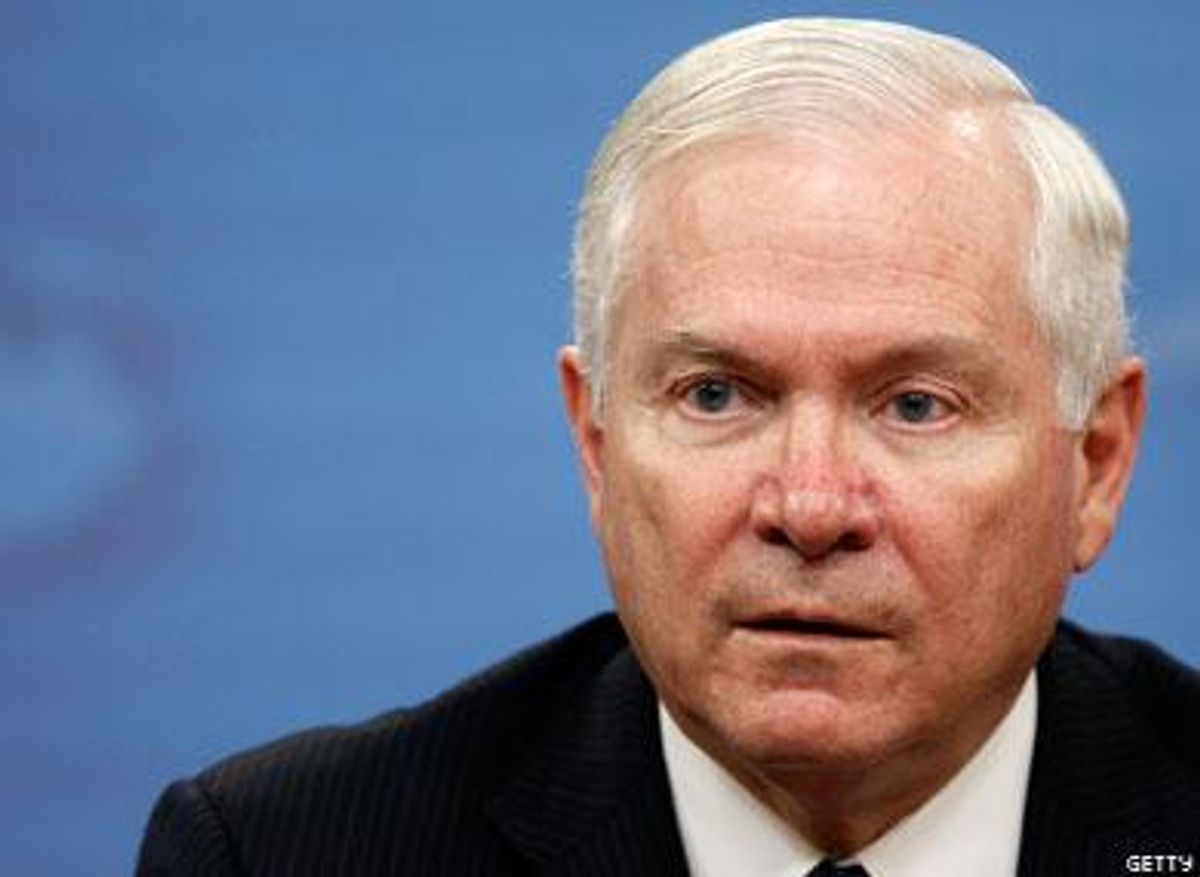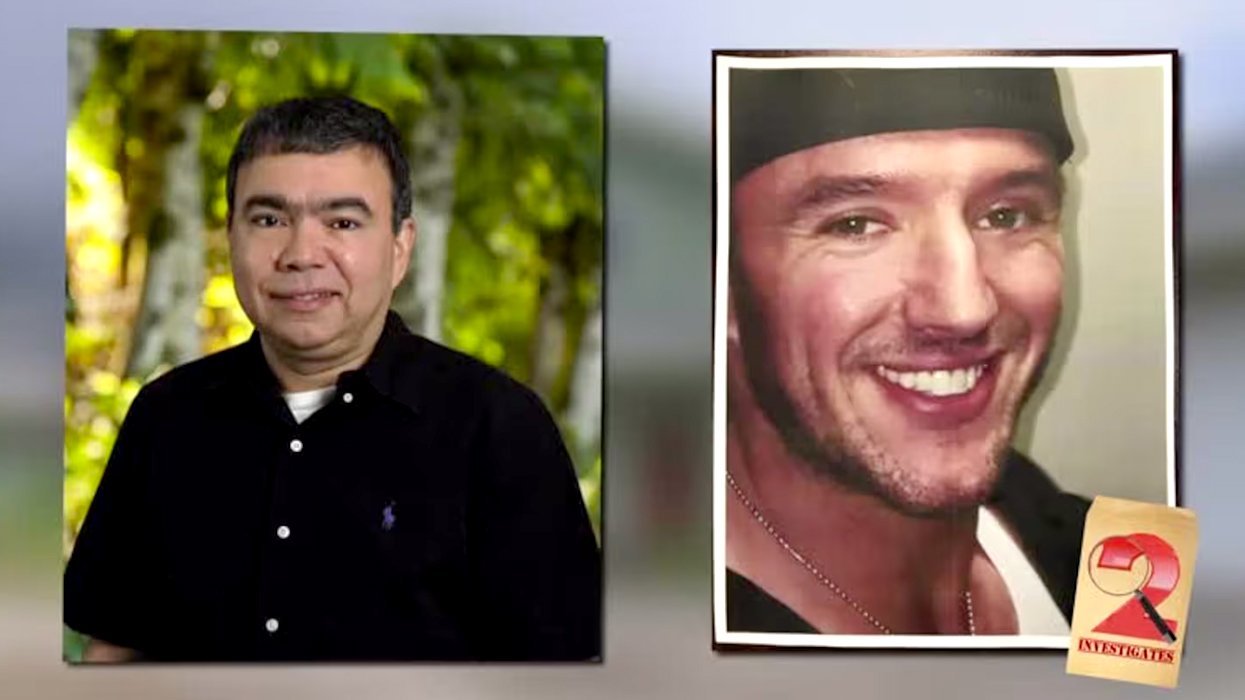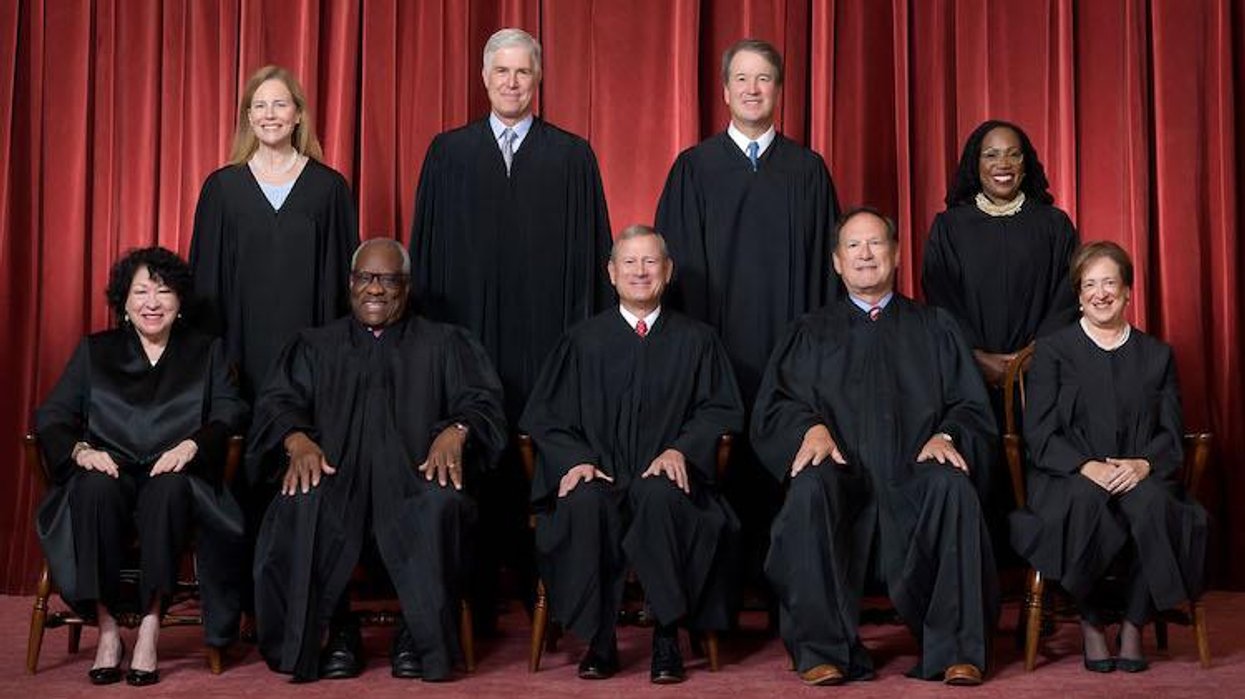CONTACTStaffCAREER OPPORTUNITIESADVERTISE WITH USPRIVACY POLICYPRIVACY PREFERENCESTERMS OF USELEGAL NOTICE
© 2024 Pride Publishing Inc.
All Rights reserved
All Rights reserved
By continuing to use our site, you agree to our Private Policy and Terms of Use.
Secretary of Defense Robert Gates issued new guidelines Thursday aimed at decreasing the number of discharges under "don't ask, don't tell," including an upgrade in the rank of who can initiate investigations into a service member's sexuality and restricting what constitutes "credible information" and a "reliable" source for that information.
"I believe these changes represent an important improvement in the way the current law is put into practice," said Gates, "above all, by providing a greater measure of common sense and common decency to a process for handling what are difficult and complex issues for all involved."
Among other things, the new regulations raise the level of officers authorized to initiate investigations and approve discharges to that of a general or flag officer (i.e. admiral); they require that information from third parties be given under oath; and they place a higher level of scrutiny on who will be deemed a credible source.
Anyone who has a "motive to seek revenge" or "a prior history of conflict with that service member" might not be considered a "reliable person" under the new regulations, according to Jeh Johnson, general counsel for the Department of Defense.
Johnson, who answered questions following the press briefing with Gates and Adm. Mike Mullen, also noted that the new guidelines include no penalty for soldiers who choose not to report information they may have about a fellow service member's sexual orientation or conduct.
Confidential information provided to lawyers, clergy, psychotherapists and other medical professionals will now be off limits in the course of an investigation.
Gates said the new changes were "unanimously supported" by Joint Chiefs of Staff chair Mullen and the corresponding service chiefs of the armed forces. The new regulations going forward will apply to all new cases, and cases that are open will need to be reinitiated.
"Every case that is currently still open will be dealt with under these new regulations, so they will be reinitiated by a flag rank officer," Gates said, adding that people who are already in the process of being discharged can opt out of reopening their cases.
But how information that has already come to light in the course of an investigation will be used is still in question. If, for instance, a service member declared himself or herself to be gay during the proceedings, that constitutes evidence of one's homosexuality in the eyes the law.
When Jeh Johnson was asked if such information could still be used once a case was reinitiated, even if causation for the original case did not meet the new standards, he did not have a definitive answer.
"That's a good question -- we have to work that through," Johnson said.
Aubrey Sarvis, executive director of Servicemembers Legal Defense Network, said he still thought some service members could be helped by having their cases reconsidered.
"We believe that some of our clients will benefit from the new standard articulated today," he said. "But we're still anxious and need more clarification on pending cases."
The Defense Department did not respond immediately to an inquiry for further guidance on the matter.
Gates did weigh in on two questions that have been floating around Congress about the yearlong implementation review of repeal that's due in December.
He said he did "not recommend" making a change in the law before the review is completed.
But he added that the review is a study of how to repeal the law, not whether to repeal.
"This study is not about should we do it. This study is about how we would do it," Gates told reporters. "We need to identify where there might be problems or issues, or just issues to be addressed -- whether it's a change in regulations or benefits or something like that -- so that when the time comes we have some idea of what we need to do in order to carry forward."
Most pro-repeal groups later pushed back on the notion that the study's completion must predate legislative action.
"The results of this study are not necessary for Congress to go ahead and lock in repeal of the law this year, especially if repeal is scheduled to take effect after the study group finishes its work," said Alex Nicholson, executive director of the gay veterans group Servicemembers United. "Lawmakers should trust the military to successfully implement any policy change with which it is tasked."
Joe Solmonese, president of the Human Rights Campaign, added, "Two branches of government can and should work concurrently toward repeal."
During the briefing, reporters also asked Adm. Mullen whether officers have been "privately" voicing concerns about overturning the law in the midst of being engaged in two wars. But Mullen said the feedback he's gotten has been overwhelmingly positive.
"The honest answer -- this is anecdotal -- but there's been very little of that fed back to me specifically by questions or statements," he said. "Quite to the contrary, most of what I've heard has actually been very supportive."
Mullen said he and the service chiefs had "spent a lot of time" discussing repeal prior to the testimony that he and Gates gave in February.
He also defended the testimony of the head of the Marines, Gen. James Conway, who recommended against repeal.
"It wasn't my intent to get in the way of any chief's specific view," he said. "Obviously, they have responsibilities as well."
The White House sent out a statement praising the new regulations -- which President Barack Obama had asked Gates to investigate last summer -- but giving no indication of when the president would like to see legislative action.
"Today's announcement follows the powerful testimony by Secretary Gates and Chairman Mullen in February," said the statement. "The President has been clear in his call for Congress to repeal Don't Ask, Don't Tell. He appreciates the hard work by Secretary Gates to make the implementation of the current law fairer and more appropriate, as well as the broader efforts to prepare for implementation of any Congressional repeal."
LGBT groups generally welcomed the Pentagon announcement as a "first step" toward ending the ban but stressed that repeal must be passed this year.
"While the administration is to be commended for taking this step, its work is far from over," said Nathaniel Frank of the Palm Center, a California-based think tank. "As the focus shifts to Congress, the president has a major role to play to end the ban outright."
Want more breaking equality news & trending entertainment stories?
Check out our NEW 24/7 streaming service: the Advocate Channel!
Download the Advocate Channel App for your mobile phone and your favorite streaming device!
From our Sponsors
Most Popular
Here Are Our 2024 Election Predictions. Will They Come True?
November 07 2023 1:46 PM
17 Celebs Who Are Out & Proud of Their Trans & Nonbinary Kids
November 30 2023 10:41 AM
Here Are the 15 Most LGBTQ-Friendly Cities in the U.S.
November 01 2023 5:09 PM
Which State Is the Queerest? These Are the States With the Most LGBTQ+ People
December 11 2023 10:00 AM
These 27 Senate Hearing Room Gay Sex Jokes Are Truly Exquisite
December 17 2023 3:33 PM
10 Cheeky and Homoerotic Photos From Bob Mizer's Nude Films
November 18 2023 10:05 PM
42 Flaming Hot Photos From 2024's Australian Firefighters Calendar
November 10 2023 6:08 PM
These Are the 5 States With the Smallest Percentage of LGBTQ+ People
December 13 2023 9:15 AM
Here are the 15 gayest travel destinations in the world: report
March 26 2024 9:23 AM
Watch Now: Advocate Channel
Trending Stories & News
For more news and videos on advocatechannel.com, click here.
Trending Stories & News
For more news and videos on advocatechannel.com, click here.
Latest Stories
A Republican mom and her transgender son open up about unconditional love and acceptance
April 16 2024 6:00 AM
Supreme Court lets Idaho enforce law criminalizing gender-affirming care for minors
April 15 2024 8:47 PM

Plus
Yahoo FeedGay fetish artist Rex has died — see some of his sexy work
April 15 2024 8:13 PM
Brittney Griner and her wife, Cherelle, are expecting! Here's when baby Griner is arriving
April 15 2024 12:52 PM
Tennessee Senate passes bill making 'recruiting' for trans youth care a felony
April 14 2024 11:17 AM


















































































